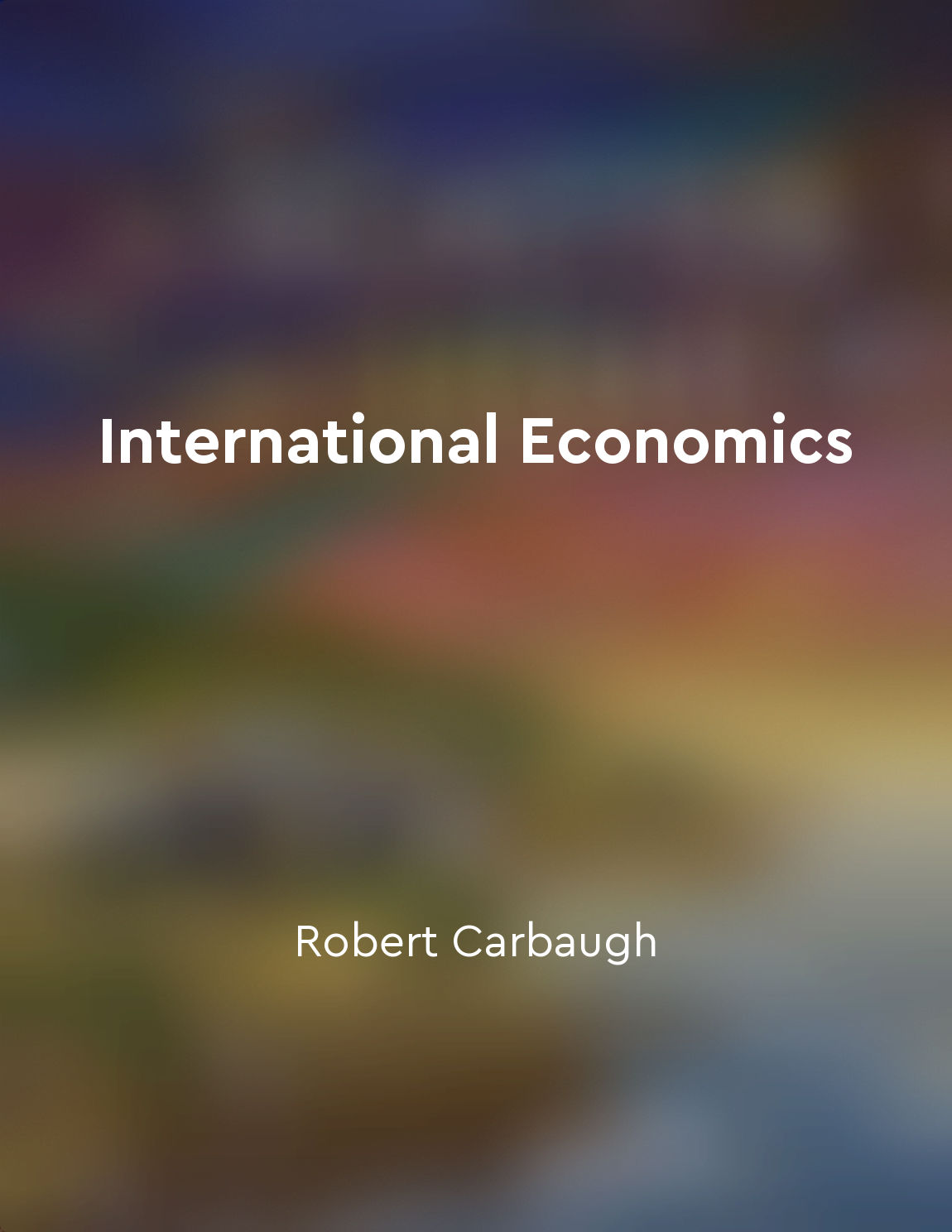Audio available in app
Labor mobility impacts global economy from "summary" of International Economics by Robert Carbaugh
Labor mobility refers to the ability of workers to move from one geographical location to another in search of employment opportunities. This movement of labor has significant implications for the global economy. When workers are able to easily relocate to areas where their skills are in high demand, it can lead to increased efficiency and productivity in those regions. This can result in a more optimal allocation of resources and the potential for higher economic growth. Moreover, labor mobility can help address labor shortages in certain industries or regions. For example, if a particular country is experiencing a shortage of healthcare workers, it can attract foreign healthcare professionals to fill the gap. This can help improve the quality of services provided and ensure that the population's healthcare needs are met. In this way, labor mobility can contribute to the overall well-being of society. On the other hand, labor mobility can also lead to challenges for certain economies. For instance, brain drain occurs when highly skilled workers emigrate to other countries in search of better opportunities. This can result in a loss of expertise and talent in the home country, which can hinder economic development. Additionally, the movement of low-skilled workers to more developed countries can put pressure on the receiving country's infrastructure and social services.- Labor mobility is a complex phenomenon that has both positive and negative impacts on the global economy. While it can help improve efficiency, address labor shortages, and enhance the quality of services, it can also lead to brain drain and strain on social services. Policymakers need to consider these factors when formulating immigration and labor policies to ensure that the benefits of labor mobility are maximized while mitigating its potential drawbacks.
Similar Posts
Policies should support human migration for cultural exchange
Policies that facilitate human migration can promote cultural exchange, enriching societies with new ideas, perspectives, and t...
Smart cities
The notion of a city that is "smart" is one that we encounter with increasing frequency in the discourse around technology and ...
The circular flow model illustrates how goods, services, and money flow in an economy
The circular flow model is a useful tool that helps us understand how goods, services, and money move through an economy. Imagi...
Sustainable development
The problem of the industrial and commercial future of a country has been raised, dealt with, and disposed of in an extraordina...

Resurgence of populist movements
The resurgence of populist movements reflects a broader global trend towards political and social upheaval. This phenomenon is ...
India's business landscape transformed rapidly
The business landscape of India underwent a rapid transformation in the course of its history. This transformation was marked b...
Market economy as human creation
The market economy is not a natural phenomenon. It is not a force of nature that exists independent of human intervention. Rath...
Statebuilding process in England and France
The statebuilding process in England and France during the early modern period was a crucial development that laid the foundati...
Environmental economics considers the impact on the environment
Environmental economics focuses on the relationship between the economy and the environment. It considers how economic activiti...


